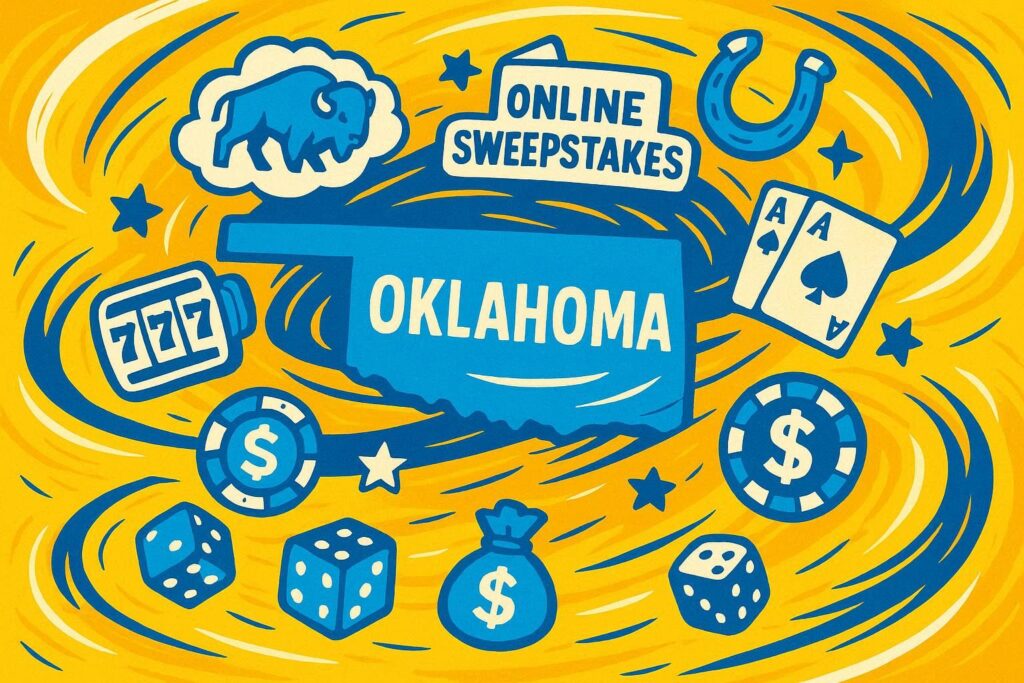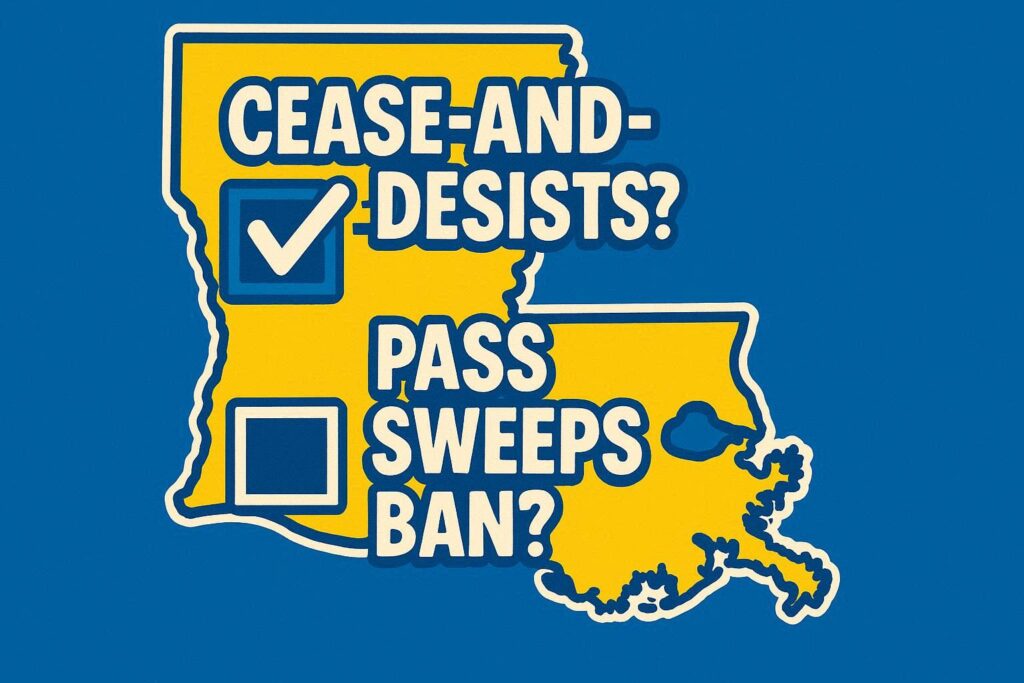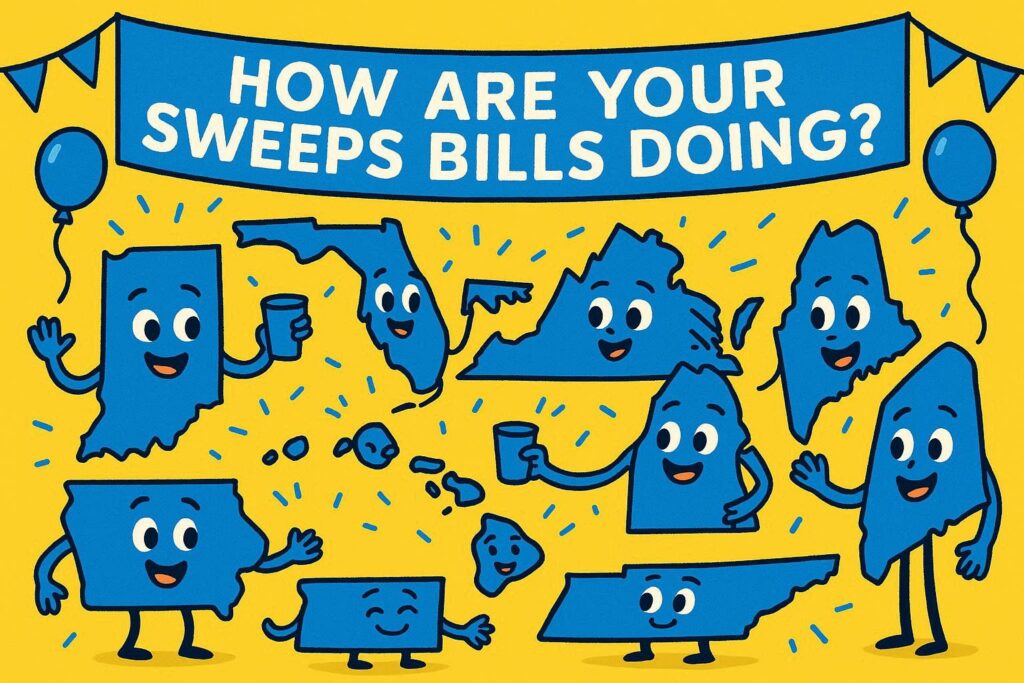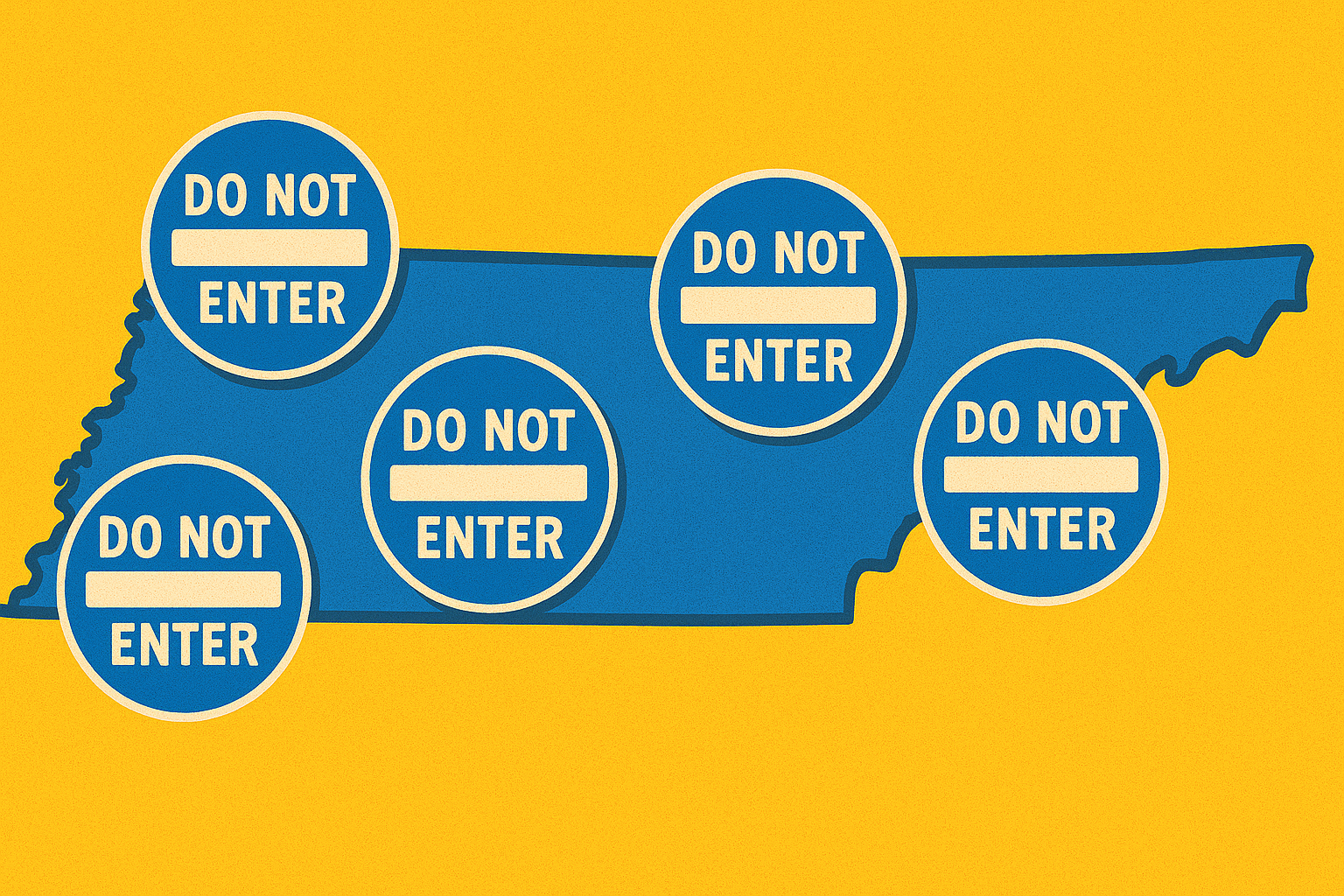Efforts to pass a bill banning sweepstakes casinos in California are “moving way too fast for anyone to comprehend,” Jason Giles, executive director of the National Indian Gaming Association, said on a webcast Wednesday.
In a climate where the nation’s largest state is mulling a ban on sweepstakes casino operators, conflicting opinions are emerging on a prohibition. But one thing is certain: Tribal nations fear their sovereign gaming rights are being infringed upon.
That was a central theme in Wednesday’s episode of The New Normal that featured Giles, industry consultant and newsletter publisher Dustin Gouker, California Nations Indian Gaming Association Chairman James Siva, and Victor Rocha, host of The New Normal and conference chair of the Indian Gaming Association.
This week’s webcast was titled: “The New Normal: Sweepstakes, Prediction Markets, and the Fight for The Future of Gambling in California.”
‘The land of milk and honey for everybody’
A prominent topic in the discussion was Assembly Bill 831, the bill that would ban sweeps casinos in California and criminalize any entity that “knowingly” supports them. It’s currently in the Senate Appropriations Committee’s suspense file, but it will be debated during a hearing this Friday, at which point committee members will decide whether to stall the bill or pass it along for a full Senate vote.
“California is the land of milk and honey for everybody in the industry,” said Rocha, who predicts AB831 will be passed. Gouker, Siva, and Giles all predicted the same.
Gouker pointed out that the path being taken with sweepstakes casinos is the same as California took with poker years ago, which resulted in a market that few are happy with.
Echoing Giles’ belief that the fast-track treatment of AB831 is actually confusing stakeholders, Siva added that tribes have been coming to him saying they don’t understand some of the main issues at hand in the gambling industry.
Cryptocurrency could complicate gaming regulations
Even if sweepstakes are banned in California, Giles said it wouldn’t necessarily be the end of those products in the state.
“Sweepstakes casinos will be easier to play with a crypto component in the mix,” Giles said, whether they are banned or not.
The issue of cryptocurrency potentially making it more difficult to clear out sweeps casinos is one few in the industry are talking about. But, given the advancements in crypto and the support that system has from the current presidential administration, it’s something to watch.
Gouker: Sweeps may be baby step toward prediction markets
Gouker sees regulated sweepstakes casinos as a substitute for prediction markets.
“Why get licensed through the CFTC (Commodity Futures Trading Commission),” he asked, if you can “simply do similar odds markets in a legal sweepstakes casino app?”
The CFTC under the Trump administration has been eager to clear the way for predictions markets, which some betting apps are already preparing to offer. It may not be a huge leap for sweepstakes casinos to offer predictions markets in the future.
Gouker also cautioned that much of the landscape of betting legislation and policy could shift in the near future. He speculated at what may happen to predictions markets if a Democratic president is elected in 2028. The CFTC could swing the opposite direction regarding predictions odds regulations.
Given the uncertainty of how the federal government will handle predictions markets as swaps, “everyone has to hedge to see what this will look like” depending on how the next presidential election and a “regime change of the CFTC,” Gouker said.
Siva: Tribal sovereignty is being sold
According to Siva, some sweepstakes companies are “asking [tribes] to sell some of their sovereignty away” on promises that the revenue can “provide basic resources for their members.” He said gaming companies keen on establishing sweepstakes casinos sponsored by native organizations are “trying to pick off these smaller tribes.”
“You cant trust what these [commercial gaming] companies are telling you,” Siva said, and he asked “why trust an outsider when we have tribes that are willing to work with [the small tribes]?”
AB831 has the support of large gaming tribes and the 50-tribe CNIGA. Two smaller tribes, however — the Kletsel Dehe Wintun Nation and the Big Lagoon Rancheria — have recently come out against AB831. In fact, the Kletsel Dehe Wintun Nation signed a partnership with sweeps behemoth VGW, which owns Chumba Casino, LuckyLand Slots, and Global Poker.
“It’s a complicated issue right now in California,” Siva said.
A recent report claims that California could gather in as much as $300 million in revenue annually from regulated sweepstakes casino activity. That same analysis revealed that California accounts for a staggering 17% of the sweepstakes casino market in the United States. That means the Golden State is the golden goose in regards to sweepstakes casinos.








